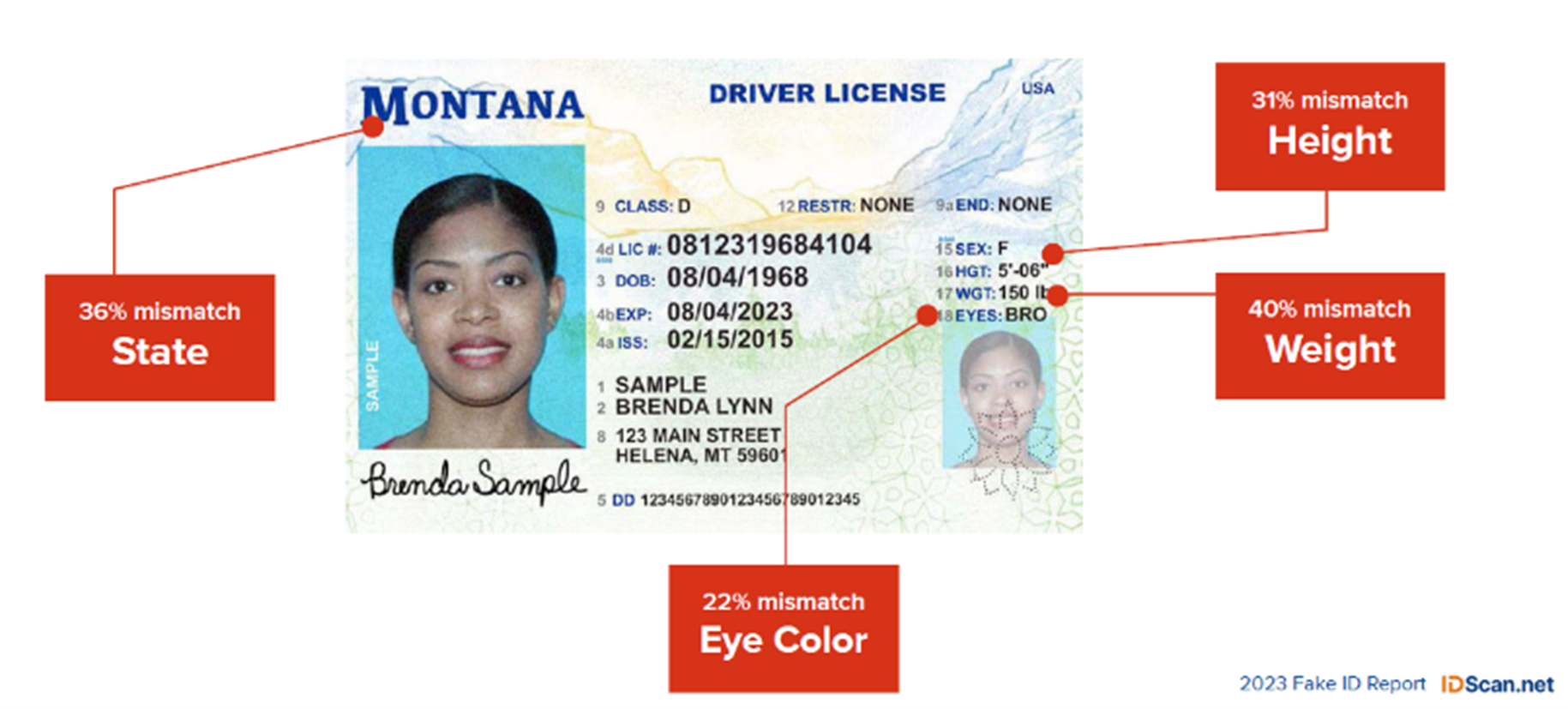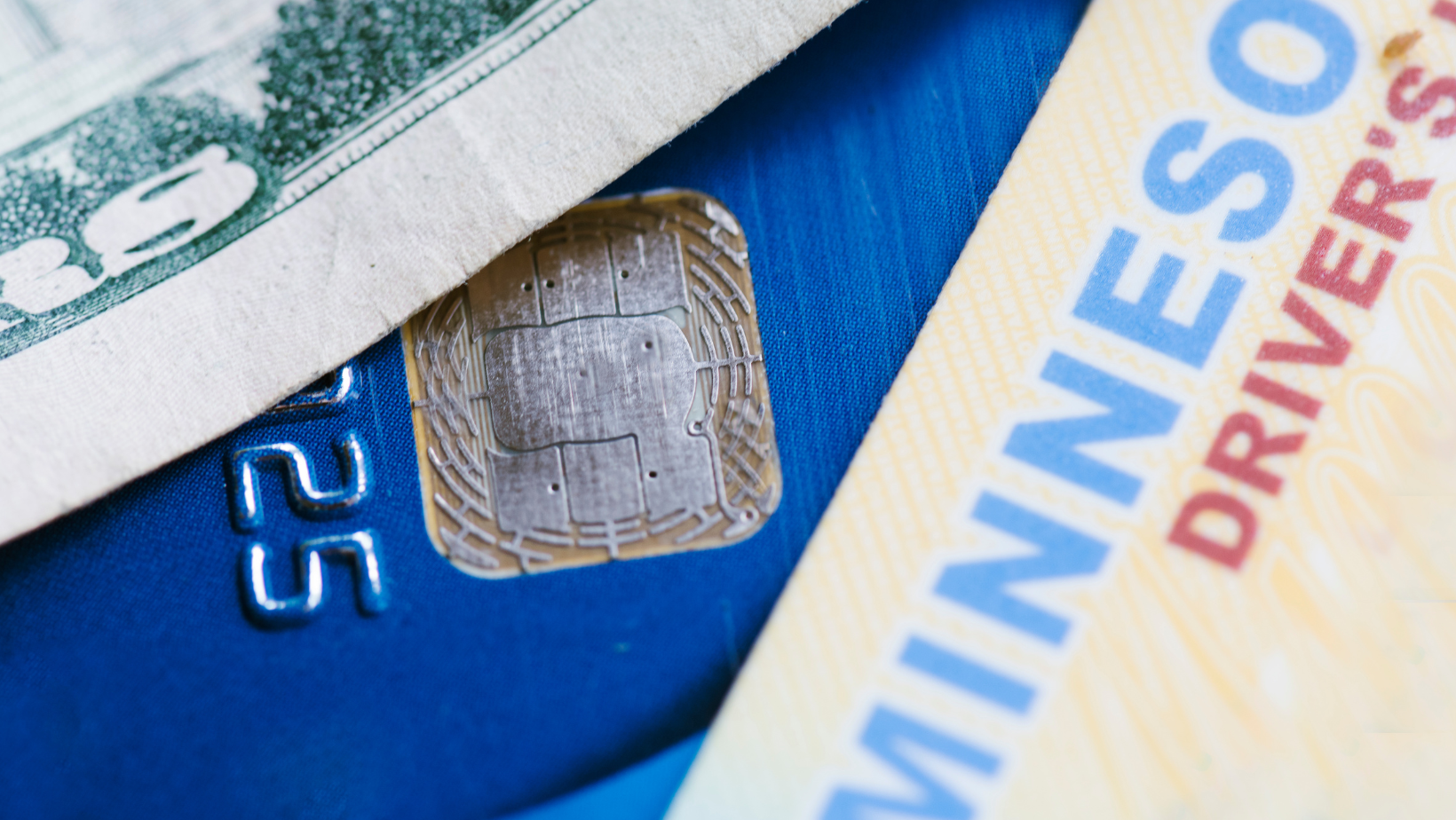IDscan.net recently released a report, Fake ID Report 2023, which reveals crucial insights into the current state of fake IDs and ID fraud. Fake IDs continue to become more and more sophisticated making it harder for the average person to spot. In their report, IDscan.net found that 97% of fake IDs seized in 2020 were imported from China or Hong Kong. Over the years, the US Customs and Border Protection (CBP) has intercepted several of these shipments including 3000 fake licenses headed to New York. Unfortunately, many still make their way over successfully and are utilized by criminals and underage patrons alike.
How common are fake IDs among underage users?
A report by the National Library of Medicine found that 40% of underage college students currently or have previously owned a fake ID. Many of these are used to get into bars or purchase alcohol at a store. Visiting dispensaries or casinos is another common use of fake IDs. Female college students appear to be slightly more likely than their male counterparts to own a fake ID. However, male students are more likely to get caught attempting to use them.
How do students get fake IDs?
As a nation, we are well aware that fake IDs are a massive problem. Yet, most fakes still seem to slip past the CBP and land in the hands of teenagers and young adults. How does this happen? An article published by the New York Times details one way in which these illicit IDs slip through. Students are often able to order these IDs online. The Chinese sellers frequently change website URLs and emails to evade being caught by authorities.
The seller will ask the buyer to send personal identifying information (PII) about themselves, a photo, and a payment. Often, the buyer is unsure if the business is legitimate until they receive the IDs. This buying method puts students in danger of not only being scammed out of a large chunk of money, but also of potential future fraud due to handing over some of their PII.
If the transaction was legitimate, the fake ID will ship to the buyer. Often, these IDs are hidden in packaging with other objects such as bracelets, tea sets, or other cheap items to avoid being flagged during shipping. Many sellers will also send multiple copies of a fake ID so that buyers have a backup if one is confiscated while being used.
What to look for in a fake ID?
Fake IDs often have mismatched information on them. The graphic below shows some of the most common incorrect information that can be found on a fake.

However, carefully examining these details can be time consuming and prone to error. Many of the newer fake IDs can be extremely difficult to distinguish by eye for the average person. ID authentication systems are often needed for quick and accurate verification.
Which businesses are being targeted?
As mentioned above, Fake IDs are commonly used at bars, nightclubs, liquor stores, cannabis dispensaries, and casinos. In 2022, more than 550 people across New York State were ticketed for trying to purchase alcohol with a fake ID. The state had launched their “Operation Prevent” campaign to ramp up enforcement efforts to help reduce underage drinking and driving. Law enforcement also ticketed those breaking the Alcoholic Beverage Control Law.
In many cases, serving underage patrons (regardless of whether the business was aware they were underage) can put a business at significant risk. In 2022, several notable bars were shut down across the US for serving alcohol to underage drinkers, including a Twin Peaks location, Reggie’s, City Bar, and many more. Recently, states have begun passing laws for an affirmative defense. For businesses in these states (AZ, CT, NV, NY, NC, OH, OR, PA, TX, UT, and WV) they can integrate an ID authentication system into their transaction processing in order to avoid problems, as these laws dictate a release of any liability the establishment may be exposed to if they scan IDs through an authentication and age verification system during the sale of an age-restricted product.
.png?width=1640&height=500&name=PALIDIN%20scanners%20-%20Identity%20Authentication%20Graphic%20(2).png)
ID authentication systems can help detect 95% or more of all fake IDs. By implementing technology like PALIDIN, business can help law enforcement crack down on underage drinking and prove their own due diligence.


